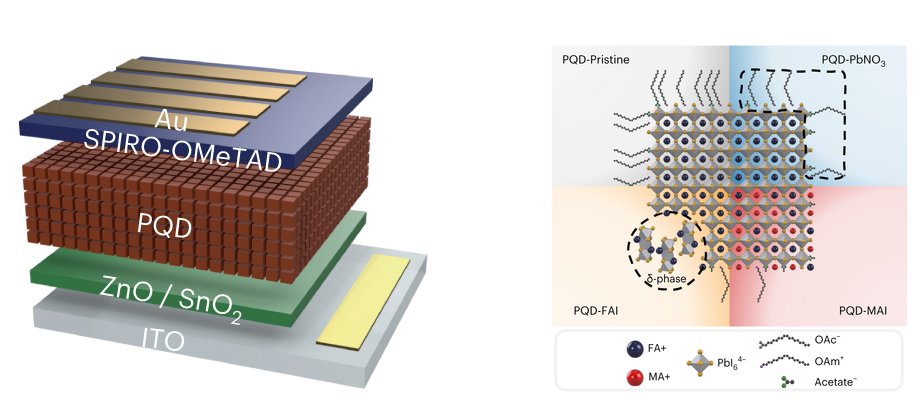Perovskite Quantum Dots: New Solar Cell Technology Breaks Efficiency Record
Korean experts innovate by achieving record efficiency of 18.1% in perovskite quantum dot solar cells, promoting significant advances in the commercialization of these next-generation technologies.
The technique developed by the team at the Ulsan National Institute of Science and Technology uses perovskite quantum dots based on organic cations, ensuring exceptional stability and suppressing internal defects in solar cells.
Perovskite quantum dots, semiconductor nanoparticles, have aroused interest due to their excellent photoelectric properties, and can be used both for emitting light on screens and for generating electricity in solar cells.
New Advances in Solar Cell Technology
The team overcame challenges associated with organic perovskite quantum dots, achieving efficiency that exceeds 18% and demonstrating exceptional stability even after long periods of storage.
This innovation represents an important milestone in the development of next-generation solar cells, which use perovskite quantum dots to harness solar energy more efficiently and sustainably.
The study, published in the journal Nature Energy, describes the alkylammonium iodide-based ligand exchange strategy, which promotes the interconnection of organic perovskite quantum dots, resulting in high efficiency and defect control.
With these advances, the efficiency of organic quantum dot solar cells has increased significantly, surpassing the 18% mark, becoming an increasingly viable alternative to traditional semiconductor technologies.
Revolution in the Energy Sector
The development of these perovskite quantum dot solar cells promises to revolutionize the energy sector, offering a clean and efficient source of energy for diverse applications, from electronic devices to renewable energy systems.
Global recognition of the importance of perovskite quantum dots was reinforced last year, when researchers who contributed to their discovery were awarded the Nobel Prize in Chemistry, highlighting the potential of these nanotechnologies to transform the solar industry.
With the continued innovation and improvement of quantum dot solar cells, the efficiency and viability of these technologies are expected to increase further, driving the transition to a more sustainable and clean energy matrix.




